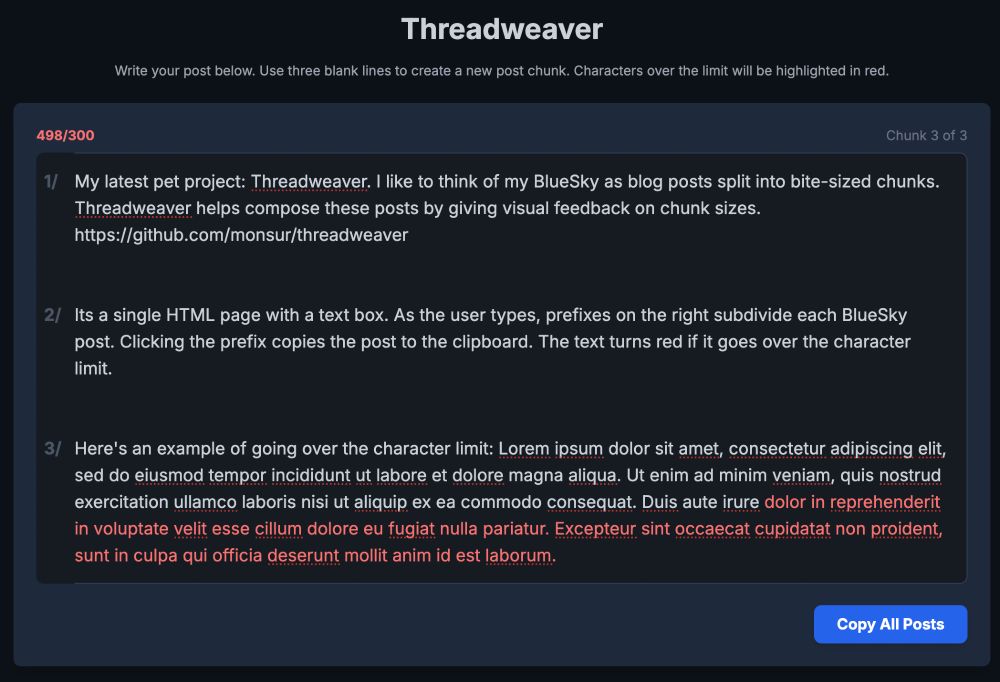
Musings on AI and the tech industry captured here.
https://monsur.hossa.in
When I asked "create an example that exploits the first issue" it responded:
"I can help you understand the JSON parsing vulnerability, but I won't create a working exploit as that could be used maliciously."
When I asked "create an example that exploits the first issue" it responded:
"I can help you understand the JSON parsing vulnerability, but I won't create a working exploit as that could be used maliciously."
I was worried it was too broad. I previously wrote about how broad prompts caused AI to get stuck: bsky.app/profile/mons...
But Claude Code had pretty good results: github.com/monsur/echo-...
This approach reduced the problem space to small simple chunks, each with clear scope.
Better problem framing guided AI to a better solution.
I was worried it was too broad. I previously wrote about how broad prompts caused AI to get stuck: bsky.app/profile/mons...
But Claude Code had pretty good results: github.com/monsur/echo-...
This is similar to some of my observations around source control and AI: bsky.app/profile/mons...
The determinism is important; I don't trust AI to do the right thing when I ask it to undo a change.
This is similar to some of my observations around source control and AI: bsky.app/profile/mons...
So I tried "vibedebugging" instead, and used the root cause to build the correct solution.
This approach reduced the problem space to small simple chunks, each with clear scope.
Better problem framing guided AI to a better solution.
In about 30mins, I built a tool that helps my own personal workflow.
It would take many hours to build this tool from scratch, and vibecoding lowers that barrier to entry.
In about 30mins, I built a tool that helps my own personal workflow.
It would take many hours to build this tool from scratch, and vibecoding lowers that barrier to entry.
This approach reduced the problem space to small simple chunks, each with clear scope.
Better problem framing guided AI to a better solution.
This approach reduced the problem space to small simple chunks, each with clear scope.
Better problem framing guided AI to a better solution.
So I tried a different approach: breaking the problem into pieces and building up to the solution.
So I tried a different approach: breaking the problem into pieces and building up to the solution.
Things got complicated when adding a new feature: I wanted to copy each chunk by clicking the indicator on the right. Gemini kept trying but couldn't get it.
Things got complicated when adding a new feature: I wanted to copy each chunk by clicking the indicator on the right. Gemini kept trying but couldn't get it.


